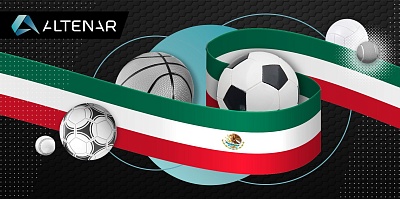The South American gambling scene has undergone a dramatic transformation since 2021, positioning the region as a focal point for iGaming operators worldwide. The convergence of regulatory reforms and technological advancements has energized sports betting to unprecedented levels, with the LatAm online gambling market projected to quadruple in annual revenue by 2027.
Brazil's new regulatory framework for online gambling, launched on January 1, 2025, is set to significantly impact the Latin American market. Experts predict it could contribute half of the region's online gambling revenue. This development highlights the region's rapid evolution from an emerging market to a global powerhouse in the iGaming sector.
While the South American gambling market has seen substantial growth, the pace of expansion has brought its own challenges. Several regional governments are now grappling with the unintended consequences of this rapid development. Concerns over the societal impacts of gambling addiction, particularly among vulnerable populations, have become a central issue.
These issues are further complicated by debates surrounding the economic implications, including questions about fair tax structures and whether the industry’s benefits outweigh its potential costs. Regulatory bodies throughout the region are introducing tighter controls and prioritizing consumer protection measures to address these concerns.
Key Jurisdictions with Legalized iGaming
Overview of the leading markets driving the LatAm iGaming boom in 2025.
Brazil
Brazil’s long-anticipated regulation of fixed-odds sports betting marks a pivotal milestone for the country’s gambling sector. Key provisions include a licensing fee of 30 million reais (approximately €4.8 million) and an 18% gross gaming revenue (GGR) tax, creating a structured and transparent framework for operators.
To comply, operators must meet strict licensing requirements focused on fraud prevention, consumer protection, and responsible gambling. Measures include implementing player safeguards such as deposit limits and ensuring transparency in advertising to avoid targeting vulnerable populations. These standards aim to promote a more sustainable gambling environment while enhancing market credibility.
With gross gambling revenues projected to reach $2.9 billion in 2025, Brazil is positioned as South America's largest and most influential market. This regulatory progress signals immense opportunities for operators while setting a benchmark for the region’s evolving gambling landscape.
Colombia
Colombia emerged as a trailblazer in South America's online gambling sector, establishing a comprehensive regulatory framework in 2016. Under the governance of Coljuegos, the industry has experienced steady growth supported by clear and stable regulations.
Since 2021, the country has continued to refine its gambling laws, implementing stricter anti-money laundering measures to strengthen market integrity. Additionally, the introduction of new gaming verticals, such as virtual sports and esports betting, reflects Colombia’s commitment to staying current with global trends.
With over 17 licensed operators, Colombia has achieved high market penetration, with online gambling revenues projected to exceed $1 billion by 2025. The nation’s early adoption and progressive approach offer valuable insights for other jurisdictions aiming to develop thriving iGaming markets.
Argentina
Gambling regulation operates under a decentralized framework in Argentina, with each province managing its own policies. Notably, both the province and city of Buenos Aires have recently taken a proactive approach. In 2021, they introduced online gambling licenses, bringing greater structure and oversight to the market.
Taxation varies by region. The Buenos Aires province imposes a 10% GGR tax, while the city enforces a higher rate of 25%. Recently, there has been a push for increased collaboration among provinces to harmonize operations and create a more cohesive market environment.
Projections indicate that Argentina's iGaming revenues could reach 840 billion Argentine Pesos (ARS) (approximately €2.35 billion) by 2025. This growth presents major opportunities for operators to tailor offerings to the unique preferences of each province, enhancing engagement and market share.
Peru
In 2022, Peru enacted its first comprehensive online gambling and sports betting legislation, launching a new era for iGaming. Regulations have driven a surge in investor confidence, as the government’s focus on transparency and anti-money laundering measures has created a safer, more attractive environment for business.
Operators are subject to a 12% GGR tax, with proceeds directed toward public welfare programs. The regulations strongly emphasize transparency and player protection, fostering a safer market and enhancing consumer trust.
Market projections indicate a compound annual growth rate (CAGR) of 3.6%, with revenues expected to reach €1.82 billion by 2025. This growth presents substantial opportunities for new operators to enter Peru's stable regulatory environment and engage with its expanding player base.
Chile
Chile is steadily progressing toward formal online gambling regulation, with draft legislation introduced in 2021 still under deliberation. While current operations exist in a gray area—that is, technically unregulated but tolerated—there is growing momentum to bring structure and transparency to the market.
The Ministry of Finance has prioritized developing a framework that includes licensing requirements and a 10–20% GGR tax to formalize the sector and generate public revenues.
This ongoing uncertainty presents challenges for operators, but once enacted, new regulations are expected to unlock significant opportunities, tapping into a player base with high demand for legalized online gambling. With the new framework, Chile could position itself as a leading market in South America, attracting both regional and global operators.
Costa Rica
Costa Rica has long been a hub for online gambling operators due to its lenient regulatory environment. Rather than issuing specific online gambling licenses, the country allows operators to register as data processing businesses, offering significant operational flexibility. Despite ongoing discussions about implementing stricter regulations to align with international standards, no major legislative changes have been enacted so far.
In recent years, the Costa Rican government has considered implementing more robust regulations to align with global expectations and enhance the industry's legitimacy. However, the regulatory framework remains largely unchanged.
The current market conditions offer both opportunities and challenges. The absence of formal regulation provides operational freedom but raises concerns about legitimacy and player trust. Operators should stay vigilant and monitor potential regulatory developments that may impact business operations.
Mexico
Mexico's online gambling market operates under the Federal Gaming and Raffles Law, overseen by the General Directorate of Games and Lotteries. While the law permits online gambling, it lacks specific provisions tailored to digital platforms, resulting in a somewhat ambiguous regulatory landscape. Operators typically partner with locally licensed entities to navigate these complexities.
In recent years, the Mexican government has discussed modernizing its existing gambling laws to better address online operations and enhance regulatory clarity. However, no significant legislative reforms have been implemented, leaving the market operating under the current framework.
Despite regulatory ambiguity, Mexico's online gambling market continues to grow. Fueled by a large population, increasing internet access, and a cultural affinity for gaming, the market generates over €1.57 billion annually. This ongoing expansion presents substantial opportunities for operators to engage a diverse and enthusiastic player base.
Rest of Latin America
Across the region, the economic potential of regulated online gambling is gaining increased recognition. Still, many countries remain in early development stages or face significant obstacles to implementation.
Ecuador, for example, has made notable progress with its recent licensing framework for sports betting, signaling a move toward structured oversight. This contrasts sharply with countries like Venezuela and Guyana, where economic instability and minimal regulation hinder market development. Similarly, Suriname and Paraguay operate under underdeveloped frameworks, leaving operators in largely unregulated environments.
Throughout Central America, countries such as Honduras, El Salvador, Nicaragua, and Guatemala have yet to implement comprehensive online gambling regulations. While these countries show promise, their reliance on informal operations highlights the need for stronger legal foundations. The lack of consistent oversight across the region creates challenges for operators seeking market legitimacy and long-term stability.
Despite these challenges, market conditions remain favorable. Increasing internet penetration and the popularity of mobile betting are fueling demand, especially in culturally gaming-friendly environments. As governments look for ways to regulate and tax this growing sector, new opportunities for local and international operators are emerging. However, businesses must carefully assess each jurisdiction’s regulatory framework to take advantage of growth while mitigating potential risks.
Legislative Developments Across the Region
Latin American countries are steadily revising their online gambling laws to balance market growth with player protections. Brazil, for example, has implemented measures to curb rising online sports betting addiction, including blocking unauthorized websites and prohibiting credit card use for gambling transactions.
Tax policy also plays a crucial role in shaping market dynamics. Brazil’s new regulations impose a substantial fee on betting operators seeking licensure and require strict compliance with fraud prevention and anti-money laundering standards.
Global operators are significantly influencing the regional market by adapting to evolving local regulations and helping shape policy standards. A notable example is Flutter’s acquisition of a majority stake in Brazil’s NSX Group—a strategic move to expand within the regulated market.
Overall, Latin America’s regulatory landscape is rapidly evolving, with countries striving to create secure, competitive, and responsible environments for operators and players alike. Moving forward, this trend suggests positive momentum toward a mature and trustworthy iGaming industry.
Market Growth and Projections
Online gambling now accounts for a large portion of sector revenue, driven by increased internet access and widespread mobile use. In countries like Colombia and Brazil, digital platforms lead market growth, contributing a dominant share of total gambling revenue. While still significant, land-based gambling has gradually declined as players shift toward digital convenience.
This evolving trend highlights the need to adapt to a tech-savvy audience while acknowledging the continued relevance of brick-and-mortar operations in markets where cultural ties to physical casinos and betting shops remain strong.
Technological advancements have played a major role in regional growth. The adoption of fintech solutions has streamlined payment systems, improving user experience and building trust in online gambling platforms. In addition, advanced gaming technologies—such as those provided by Altenar—have elevated the quality and variety of offerings available. Altenar’s state-of-the-art sportsbook software, for instance, delivers a comprehensive and customizable betting experience tailored to the preferences of Latin American users.
As the market continues to evolve, operators and investors are closely tracking technological trends and consumer behavior to capitalize on the growing opportunities in Latin America’s gambling ecosystem.
Discover how fintech innovation and customizable solutions can drive growth for your business. Schedule your software demonstration today to take full advantage of the region’s expanding opportunities.
Disclaimer
This information is not intended to be legal advice and has been gathered solely from open sources. It should not be relied upon as a substitute for professional legal counsel, and Altenar accepts no liability related to its use.













